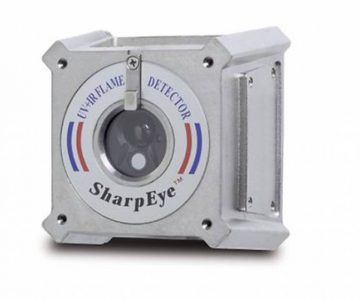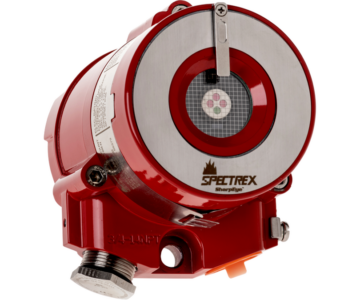Do You Have A Project We Can Help With?
Flame Detector

Fire is a devastating force that can cause significant damage to property and endanger lives. To combat the threat of fire, advanced technologies are employed in fire suppression systems. One crucial component of these systems is a flame detector. In this article, we will explore what a flame detector is, how it works, its advantages and disadvantages, and why it is essential for fire suppression systems.
What is a Flame Detector?

A flame detector is a specialized device designed to detect the presence of flames or fires in an environment. It serves as an early warning system, providing crucial information to fire suppression systems for prompt and effective response. Flame detectors are widely used in various industries, including manufacturing plants, warehouses, oil refineries, and commercial buildings.
How Does a Flame Detector Work?

Flame detectors employ advanced optical sensing technology to detect the presence of flames. They are equipped with sensors that can perceive specific wavelengths of light emitted by flames. When a fire occurs, the flame detector detects the unique light signature produced by the flames and triggers an alarm or signals the fire suppression system to take action.
Advantages of Flame Detectors
-
-
Early Detection: Flame detectors can swiftly detect flames, providing an early warning system that enables rapid response and minimizes potential damage.
-
High Accuracy: These detectors are designed to be highly sensitive to flame signatures, ensuring reliable and accurate detection while minimizing false alarms.
-
Wide Coverage: Flame detectors can monitor large areas, ensuring comprehensive fire detection coverage in expansive environments.
-
Versatility: They can detect flames in various forms, including open flames, smoldering fires, and even invisible flames such as those caused by flammable gases.
-
Reliability: Flame detectors are robust and can withstand harsh environmental conditions, making them suitable for use in diverse industries and challenging environments.
-
Disadvantages of Flame Detectors
-
-
-
Limited Detection Range: Depending on the type and model, flame detectors may have a specific range within which they can detect flames. It is crucial to consider the coverage area when deploying these detectors.
-
Interference: Flame detectors can be affected by factors such as dust, smoke, fog, or excessive ambient light, which may lead to false alarms or reduced detection accuracy. Proper installation and regular maintenance can help mitigate these issues.
-
-
Why Use Flame Detectors on Fire Suppression Systems?
-
Fast Response: By detecting flames at the earliest stages, flame detectors enable rapid activation of fire suppression systems, facilitating quicker containment and extinguishing of fires.
-
Enhanced Safety: Flame detectors contribute to improved safety by reducing the risk of fire-related injuries and minimizing property damage.
-
24/7 Monitoring: These detectors can operate continuously, providing round-the-clock fire detection capabilities, even in unoccupied or remote areas.
-
Integration: Flame detectors can be seamlessly integrated into fire suppression systems, allowing for automatic response and coordination with other safety measures.
Flame Detector Frequently Asked Questions
-
-
Q: Can a flame detector detect smoke or heat?A: No, flame detectors are specifically designed to detect flames by sensing their unique light signatures. For smoke detection, specialized smoke detectors are utilized, while heat detectors are employed to monitor temperature variations.
-
Q: Are flame detectors suitable for outdoor applications?A: Yes, flame detectors can be used outdoors. However, environmental conditions and the presence of natural light should be considered during installation and calibration.
-
Q: How often should flame detectors be tested and maintained?A: Regular testing and maintenance are crucial to ensure the proper functioning of flame detectors. It is recommended to follow the manufacturer’s guidelines for testing frequency and maintenance procedures.
-
Conclusion
Flame detectors play a vital role in enhancing fire suppression systems by providing early and accurate detection of flames. Their ability to swiftly identify fires enables prompt response, minimizing damage and ensuring the safety of occupants. While they have some limitations, flame detectors offer significant advantages in terms of reliability, versatility, and wide coverage. By integrating flame detectors into fire suppression systems, we can enhance safety and mitigate the potentially devastating impact of fires.
Download Spectrex DS-F-2020 Mini Brochure
Download Spectrex DS40-40UFL UV-IR Brochure


